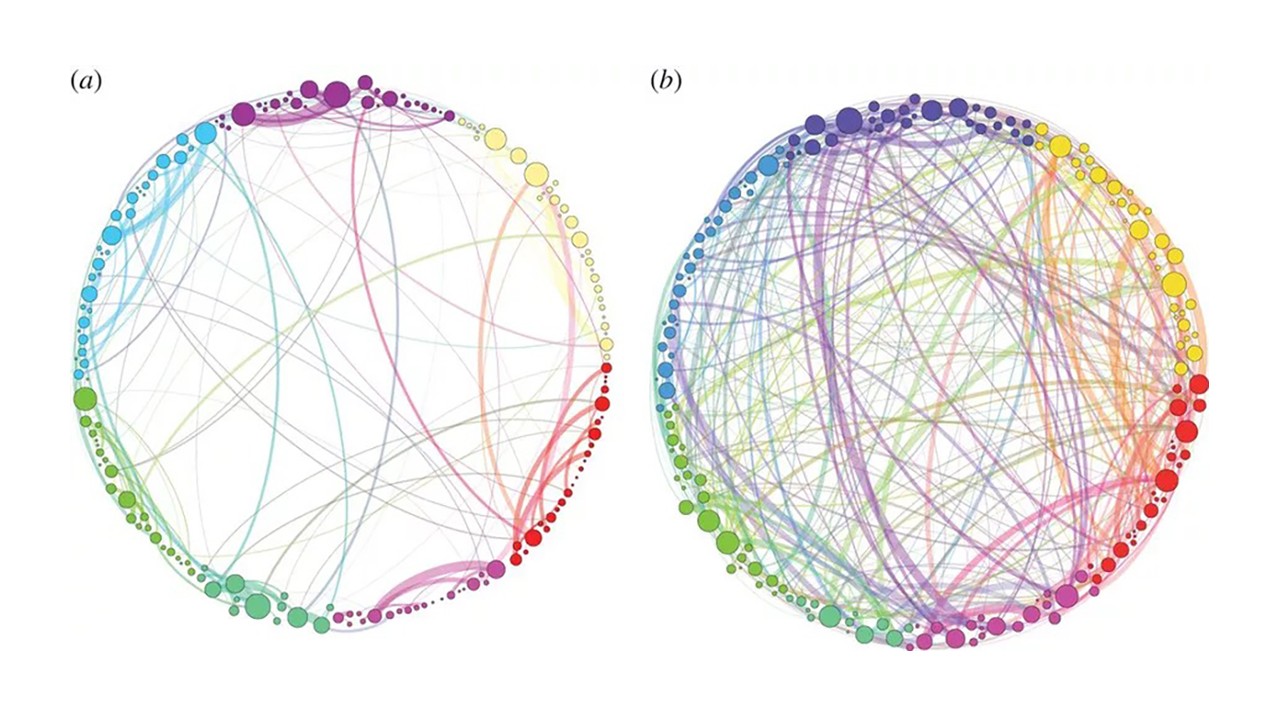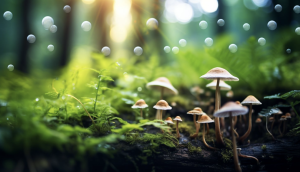New Breakthrough-Neuroscirntists Discover How Magic Mushrooms Can “Rebalance” The Brain

New Breakthrough-Neuroscirntists Discover How Magic Mushrooms Can “Rebalance” The Brain
Scientists are studying shrooms for healing potential, especially in helping people with treatment-resistant depression and MDD or major depressive disorder. Evidence of people recovering increases by the day. However, scientists have been baffled on how exactly this simple, organic, natural fungus chemically affects the brain – until now.
A study on Psilocybin, the active element in shrooms, has finally described what brain activity looks like when exposed to the chemical.
A BRIEF STATE OF THE MUSHROOM
Magic mushrooms – psychedelics that many in the past have stigmatized as a dangerous drug. Up until now, these hallucinogenic mushrooms are considered illegal in many countries. The U.S. still categorizes shrooms as a Schedule I Drug alongside hard and harmful drugs such as cocaine. These shrooms are only entirely legal in Amsterdam and Jamaica, where people benefit from their medicinal effects.
Recently, the U.S. FDA has already approved studying the medicinal effects of psychedelic mushrooms in treating mental illnesses like depression. More and more countries are becoming open to shroom use for treating depression and PTSD.
Studies about these magic mushrooms have uncovered many advantageous properties, and now, neuroscientists believe they have found a breakthrough!
What are magic mushrooms?
Magic mushrooms are a species of fungi that have the active chemical PSILOCYBIN. This chemical is a psychedelic drug that can give you a high when you ingest it.
Alongside other psychedelics, shrooms first became popular during the 1960s and 1970s. It went underground when the U.S. federal government classified it as a Schedule 1 controlled substance in 1970.
Albeit illegal in many places too, many Hollywood actors, celebrities, artists, and musicians swear by their incredible stories about using magic shrooms.
It is popular because of the hallucinogenic effects of its main active chemical, Psilocybin.
There are two countries where the planting, usage, and distribution of shrooms are all legal: Amsterdam and Jamaica. People can go to these places to legally try shrooms. Enthusiasts host curated psilocybin retreats to customers who are looking for out-of-the-mind experiences.
Your brain on shrooms
People describe psilocybin mushroom trips as “trippy.” People high on mushrooms see things in different colors or patterns. Color, sound, taste, and texture perception, distort, and emotions magnify. You may feel like either time has sped up, slowed down, or just stopped.
Some people say they can “hear” colors, “touch” music, “smell” shapes and textures, and “taste” ideas. It does sound like the brain, and its senses reset with magic shrooms.
Many who have used shrooms tell their account of seeing wall patterns swirl, objects, and animals talking. They say that when you’re high on shrooms, everything makes sense and no sense at the same time.
The displaced sensory perception that shrooms give people has attracted artists and innovators to experiment on the drug. Creatives like Steve Jobs, the Beatles, and more have resorted to psychedelics to find some enlightenment that will provide them a new sense of life, or a more profound inspiration to carry on – some restart.
However, it works, Psilocybin does something significant to the brain and its functions, especially with senses. This phenomenon is an essential area of discovery that can forward medical research for mitigating diseases that revolve around loss of senses, memory, and brain capacity.
How does Psilocybin affect the brain?
Previous research establishes that Psilocybin works by turning neurotransmitters on and off, giving the brain a chemical imbalance.
The chemical mimics and sometimes triggers feel-good hormones like oxytocin, dopamine, serotonin, and endorphins, scrambling the brain and causing hallucinations, euphoria, and “spiritual” or “mystical” experiences.
Psilocybin also causes hippocampal neurogenesis in the brain. This neurogenesis removes feelings of fear while giving positive effects on attention, perception, and cognition. These things result in a profound and uninhibited out-of-reality state of mind.
While all these conclusions are proven science-worthy, a new experiment has uncovered Psilocybin’s methodology. This new study has found out how Psilocybin destabilizes the brain and gives it a workout that somehow helps in rebalancing it and its senses.
Do mushrooms reset your brain?
Neuroscientist Morten L. Kringelbach did a recent study of mushrooms to answer, “how does psilocybin affect the brain?”. In his research, he used whole-brain computational modeling to compare how the brain acts with and without Psilocybin.
In studying their model, Kringlebach and his researchers observed regular neurotransmitter activity in people pre-psilocybin. Neurotransmissions for brain reactions to stimuli like sound, color, touch, taste, and other senses were in place.
However, when the researchers put Psilocybin into the equation, they found that the effects were getting exciting and unusual. They found that with Psilocybin, neurotransmitters started shooting in unexpected directions, forging new paths and connections between neurons that generally don’t exist. This disruption resulted in distorted and peculiar messaging in the brain with crossing and overlapping sensory perceptions.
Neurons on psilocybin move in a “pattern-interrupt” manner. They mix sight with sound, touch with taste, and unique interweaving neurotransmission.
What does Psilocybin do to the brain?
It causes Destabilization. Psilocybin gives your brain a one-two combo that puts perception into otherwise unreachable and inaccessible states.
Psilocybin gives the brain a workout, reactivating and stretching unused parts and tapping dormant areas. After the high, your mind resets, i.e., it becomes REBALANCED.
The findings of Kringelbach’s research are “literally,” mind-blowing, and of course, they open new potentials for the continuous research and discovery on shrooms and its medicinal benefits.
Rebalancing the brain
Kringelbach’s research findings not only explain what Psilocybin does to the brain but leads to the development of better medicine and therapies to treat mental illnesses.
Remixing senses can potentially trigger dormant neurons for people with paralysis and memory loss.
It is a fact that evidence of Psilocybin helping people suffering from depression exists. It even has some proof in helping people suffering from PTSD and addiction to recover.
Shrooms are a gift to us by the Earth.
The scientific, psychiatric, and medical leaders should continue studying mushroom magic. It might be the cure-all drug that the world needs.
Advocate shrooms, and become proof that there is nothing wrong with it.




